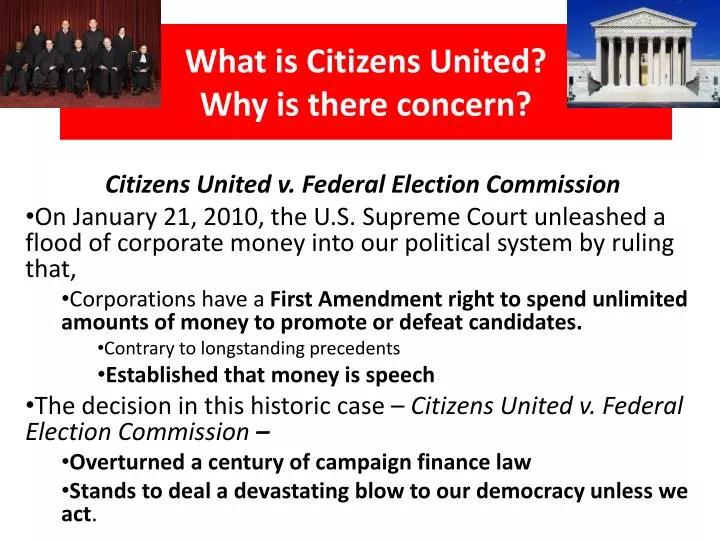How Citizens United Continues to Influence Political Campaign Finance in 2025
Enduring Impact of Citizens United on Political Funding
The landmark 2010 Supreme Court ruling in Citizens United v. Federal Election Commission has profoundly altered the landscape of political campaign financing. By permitting corporations and labor unions to spend unlimited amounts on independent political advertisements, the decision has significantly broadened the scope and sources of external election spending. This shift has facilitated the rise of super PACs and a notable increase in nonprofit political expenditures, reshaping the strategies campaigns use to secure and allocate funds.
Major outcomes stemming from this ruling include:
- A sharp escalation in “dark money” contributions, where the identities of donors remain undisclosed.
- An increased dependence on wealthy individuals and corporate donors to finance campaigns.
- Greater challenges for candidates who lack access to affluent financial supporters.
Recent election statistics underscore these developments, revealing a consistent growth in outside spending and a concentration of donations among the top 1% of contributors. The following table tracks this progression from 2010 through the 2024 election cycle:
| Election Year | Total Outside Spending (Billions USD) | Top 1% Donor Share (%) |
|---|---|---|
| 2010 | 0.3 | 25 |
| 2016 | 0.95 | 38 |
| 2020 | 1.2 | 45 |
| 2024 | 1.5 | 52 |
As campaigns continue to navigate this transformed financial environment, concerns about equitable representation and the vitality of democratic discourse grow louder, prompting intensified calls for sweeping reforms to enhance transparency and fairness.
The Surge of Dark Money and Its Consequences in Modern Elections
In the aftermath of Citizens United, the political funding arena has seen a dramatic rise in “dark money”—financial contributions from sources that do not disclose their donors. This lack of transparency has enabled covert organizations to wield disproportionate influence over elections, often overshadowing traditional campaign donations and leaving voters uncertain about who is behind political messaging.
Dark money flows through various channels, including:
- Super PACs: Independent committees that can collect unlimited funds but are prohibited from coordinating directly with candidates.
- Nonprofit “social welfare” groups: Entities that can spend extensively on political advocacy without revealing their funding origins.
- Shell corporations and LLCs: Legal structures used to further mask the true sources of political contributions.
Estimates indicate a steady climb in dark money expenditures over recent election cycles, accompanied by a decline in disclosure rates, as detailed below:
| Election Year | Estimated Dark Money Spending | Disclosure Rate (%) |
|---|---|---|
| 2012 | $300 million | 30 |
| 2016 | $400 million | 25 |
| 2020 | $500 million | 20 |
| 2024 | $550 million* (preliminary) | 18 |
*2024 figures are initial estimates and may be updated.
Legal and Policy Efforts Addressing Corporate Influence in Politics
Since the Citizens United verdict, numerous legal challenges have aimed to restrict the expansive role of corporate money in elections. However, the Supreme Court has predominantly upheld the decision’s First Amendment protections, limiting the scope for imposing strict caps on political spending by corporations and unions.
Despite these judicial constraints, lawmakers and regulators have implemented various measures to counterbalance the ruling’s effects, such as:
- Enhanced disclosure requirements: Mandating more frequent and detailed reporting of political donations to improve transparency.
- Public financing programs: Initiatives that offer candidates matching funds to lessen dependence on large donors.
- Corporate governance reforms: Promoting shareholder activism to limit corporate political expenditures.
| Policy Strategy | Objective | Effectiveness |
|---|---|---|
| Transparency Improvements | Real-time donor reporting | Moderate |
| Public Financing | Reduce large donor influence | High |
| Shareholder Engagement | Restrict corporate political spending | Developing |
While these approaches have made some headway, corporate political spending continues to evolve, sparking ongoing debates about balancing free speech rights with the integrity of democratic processes.
Promoting Greater Transparency and Responsibility in Campaign Finance
In response to the expansive financial influence unleashed by Citizens United, reform advocates and legislators are pushing for several critical changes designed to boost transparency and accountability in political funding:
- Immediate Reporting Requirements: Enforcing that political committees disclose contributions and expenditures in real time, enabling voters and journalists to monitor funding sources throughout campaigns.
- Closing Dark Money Gaps: Strengthening legislation to block the use of shell companies and nonprofits as conduits for anonymous donations.
- Expanding Public Funding: Increasing access to matching funds and voucher programs to empower candidates without wealthy backers, fostering a more level playing field.
| Reform Initiative | Expected Outcome |
|---|---|
| Real-Time Disclosure | Improved voter awareness and media scrutiny |
| Donor Transparency Laws | Reduced influence of hidden funding |
| Public Financing Expansion | Fairer competition among candidates |
Although these reforms face political hurdles and legal challenges, their implementation is crucial for rebuilding trust and fairness in the electoral system. Civic groups and watchdog organizations remain steadfast in advocating for stronger legal protections and innovative technological tools to safeguard democratic transparency.
Assessing the Legacy of Citizens United Ahead of the 2025 Elections
As the nation approaches the 2025 election cycle, the enduring impact of Citizens United continues to shape the dynamics of campaign finance. Proponents defend the ruling as a safeguard of free speech, while opponents criticize it for unleashing unprecedented levels of undisclosed and corporate political spending. This ongoing discourse influences legislative initiatives and public trust in democratic institutions.
For voters, lawmakers, and activists alike, grasping the complex ramifications of Citizens United is vital to addressing the challenges of contemporary elections. Moving forward requires vigilant oversight, innovative reform efforts, and a steadfast commitment to transparency to ensure that political expression does not undermine democratic fairness and accountability.




